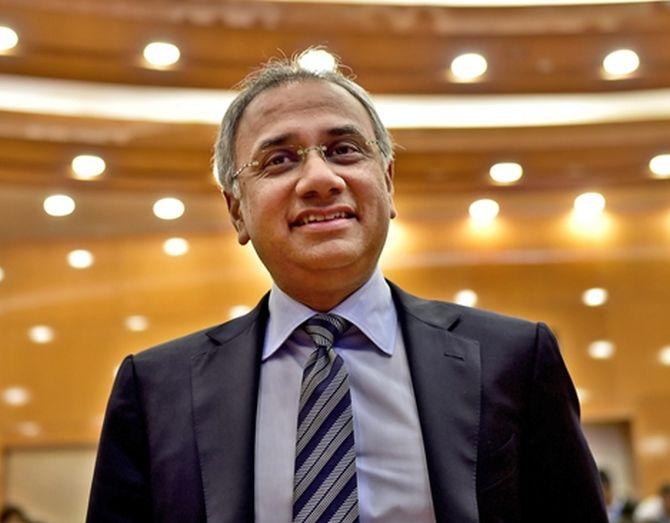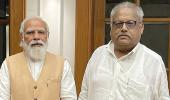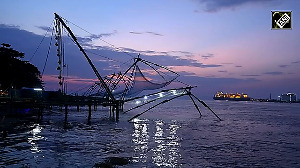Infosys CEO Salil Parekh, has praised the company's founders for building an "incredible organisation", and exuded confidence that the firm which "has always been solid" will "continue with that stability."

Parekh - who steered the firm to stability after a bitter spat between founders and then-management a few years back - believes that Infosys is "well positioned" to leverage tech-led growth opportunities over the next several years.
Parekh took over at the helm in January 2018, after a standoff between board and founders, including NR Narayana Murthy, over issues such as governance, led to the exit of then-CEO Vishal Sikka.
Over the last few years, Parekh focused on navigating challenges and has been credited with the turnaround of the Indian IT giant.
Asked if Infosys has put the turbulent times behind, Parekh told PTI in an interview, "we seem to be in a good, stable, steady position. I think the company has always been solid".
"We've seen that the founders have built an incredible organisation.
"And so the company has always been in a good place. And we hope to continue with that stability."
The company recently surprised the market by raising its full-year revenue growth outlook to 14-16 per cent for FY23, citing strong demand and a robust deal pipeline.
Notably, over the last five years, the consolidated revenue of Infosys has grown from Rs 73,715 crore in the year ended March 2018, to Rs 1,23,936 crore in the year ended March 2022.
The consolidated net profit rose from Rs 16,029 crore in FY18, to Rs 22,110 crore in the year ended March 2022.
Asked about the big challenges and opportunities ahead, Parekh said that while Infosys is on a very strong foundation, the technology area too has "really incredible growth opportunity" emerging over the next several years.
"The technology area has really incredible growth opportunity, over the next several years.
"And I find we are extremely well positioned to take advantage of that, to make sure that we play our part in it, be it in cloud, in Cobalt, in digital..." Parekh said terming it a huge excitement and opportunity in front of the company.
Infosys' top honcho said that he is "quite optimistic" about where the industry is, and the company's positioning in that.
"What is clear for us is we want to have market share growth, meaning growth, which is more than what the industry is growing at and that is a good measure," he said.
While the industry will go through its share of ups and downs, Infosys would like to be at a pace faster than the industry.
Over the last few years, Infosys has surpassed the industry's average growth rates.
"..all large companies are going through tech change. Infosys is well positioned for many of these tech changes.
"From India, we have good supply of capable people, engineering science graduates who can work on this. So the opportunity is massive," Parekh explained.
The challenge is to remain focused on what clients are looking for "and not get distracted by other things".
"If we keep that focus, I think for us it relatively should be a very optimistic outlook," he said.
Infosys - which competes with Tata Consultancy Services, Wipro and others in the IT services market - reported a net profit of Rs 5,360 crore, or Rs 12.78 a share, in the first three months of the current fiscal, compared with Rs 5,195 crore, or Rs 12.24 per share a year ago.
Infosys' revenue or turnover stood at Rs 34,470 crore in the first quarter of FY23, which was 23.6 per cent higher than a year ago.
Higher employee benefit expenses, sub-contracting charges, and travel expenses, however, pushed up overall costs for Infosys in the just-ended ended quarter.
The company had said it continues to optimise various cost levers to drive efficiency in operations.
Operating margin was lower at 20.1 per cent for Infosys, against full-year margin guidance of 21-23 per cent.
Compensation hikes impacted margins by 160 basis points, and utilisation dipped due to the impact of new freshers coming in.
Infosys has emphasised that these were more in the nature of "investments" given the robust demand scenario and assured it will be looking at cost optimising levers such as better utilisation, and more automation.
Pricing is another such lever and those discussions are on.











 © 2025
© 2025